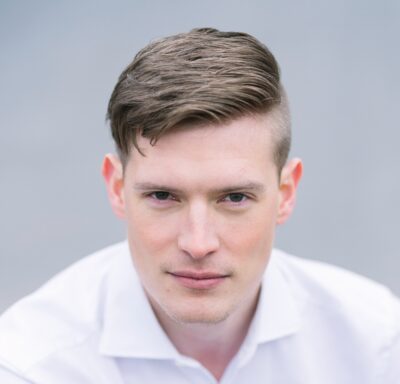This cluster gathers people interested in natural language processing.
The field of Natural Langauge Processing (NLP) is concerned with making computers able to analyse and synthesize human languages in a meaningful way. The purpose of this cluster is to provide a point of contact between people working with, or otherwise interested in the technology. The cluster operation is centered around the sharing of knowledge as well as promotion of collaborations between the cluster members. Concretely the cluster aims to:
- Organize monthly meetings in which the members take turn “hosting”. It is up to the each meeting host to decide what activities take place, but most common is to present some own research relating to NLP is one way or another.
- Provide a Slack channel for the members to share news, papers, ideas or communicate about NLP in general.
- Regularly meet physically to strengthen member relationships and promote future collaborations
Meetings
Here are historical meetings listed
Meeting host: Sebastian Bujwid
Topic: Zero-shot learning from textual descriptions
Meeting host: Tobias Norlund
Topic: On the usefulness multimodal language modelling for text-only tasks
Meeting host: Ulme Wennberg
Topic: Presentation about ACL paper on positional encodings in Transformer models
Meeting host: Filip Cornell
Topic: Few-shot Knowledge Graph completion
Meeting host: Matthías Páll Gissurarson
Topic: Property-based code completion
Meeting host: Lovisa Hagström
Topic: Transferring knowledge from vision to language
Meeting host: Ehsan Doostmohammadi
Topic: Video grounding for improved verb learning
Cluster members
 I am interested in ways to improve NLP models by incorporating non-linguistic world information through which the words and phrazes can be grounded. Grounded language models have the potential to both be more robust as well as more data efficient, which I think are important problems to address for the technology to become more widespread and applicable in the future!
I am interested in ways to improve NLP models by incorporating non-linguistic world information through which the words and phrazes can be grounded. Grounded language models have the potential to both be more robust as well as more data efficient, which I think are important problems to address for the technology to become more widespread and applicable in the future!
Affiliation: Chalmers University of Technology and Recorded Future
Email: tobiasno@chalmers.se
My research is focused on the interaction between natural language processing and computer vision.
It involves problems like zero-shot learning from textual descriptions and learning visually grounded language representation.
Affiliation: KTH Royal Institute of Technology
Email: bujwid@kth.se
My current research interests relate to multimodality for better language processing and improving the efficiency of language models through e.g. knowledge distillation. I’m also interested in the current discussions on how to incorporate meaning in NLP models.
Affiliation: Chalmers University of Technology
Email: lovhagstrom@gmail.com
My research interests lie primarily in the field of natural language processing. More precisely, I am interested in grounding NLP models in non-textual knowledge sources (e.g., images), studying such models, and developing new methods for interpreting them.
Affiliation: Linköping University
Email: edmb72@gmail.com
My research interests relate to analyzing ML networks and their governing equations to decipher their underlying mathematical assumptions. I have previously worked on information extraction, conversational systems, and most recently on analyzing the transformer architecture for language models.
Affiliation: KTH Royal Institute of Technology
Email: ulme.wennberg@gmail.com
My research is in between NLP and vision processing, where a robot can talk, see, and understand its surroundings. I am more towards applying symbolic approaches on neural methods, the gist of machine learning and AI in applications; Using the power of neural approaches, and realize the explainability and transparency of symbolic approaches.
Affiliation: Örebro University
Email: mohamadreza.farid@oru.se
My current research focuses on improving the completion of Knowledge Graphs. Namely, my main focus is on improving both transductive and inductive inference in Knowledge graphs by achieving better representations.
Affiliation: KTH Royal Institute of Technolofy
Email: fcornell@kth.se
My main topics of interest are programming languages, synthesis and program repair, as well as type systems and security and their practical implementations.
Affiliation: Chalmers University of Technology
Email: pallm@chalmers.se
Affiliation: KTH Royal Institute of Technology
Email: smehta@kth.se
My interests are within AI for political science. In particular, using NLP techniques (for example from explainable AI) to get a better understanding of political parties’ views and influences and using models to expose biases of people and groups.
Affiliation: Chalmers University of Technology (WASP HS)
Email: saynova@chalmers.se
My research interests revolve around the problem of combining multiple modalities, such as images and text, in machine learning from a language understanding point of view. Some of my research has focused on probing semantic language representations to better understand what concepts they capture. Currently, I am dipping my toes in the multimodal neuro-symbolical models to draw from strengths in deep learning and more traditional learning methods, where the utilization of knowledge graphs and logical inference is of special interest.
Affiliation: Umeå University
Email: dali@cs.umu.se
My research concerns semantic representation of video and multimodal data, with a special focus on representing the temporal information. Graph-based representations in semantic parsing are attractive due to their expressiveness and transparency. Applications include automating manual tasks on video data, and advanced semantic search among video content.
Affiliation: Umeå University
Email: iris@codemill.se
My main research interests are at the intersection of vision and language with a focus on visually-grounded communication. Currently, I am working towards improving the generation and grounding of referring expressions in multimodal dialogue.
Affiliation: KTH
Email: bramw@kth.se
I am interested in natural language processing and representation learning for conversational AI because I believe AI will inevitably affect all aspects of our lives sooner or later, especially how we communicate and share knowledge. In particular, I will address the question of whether general representations of spoken conversation can be learned in a self-supervised manner.
Affiliation: Chalmers
Email: mehrdad.farahani@chalmers.se


